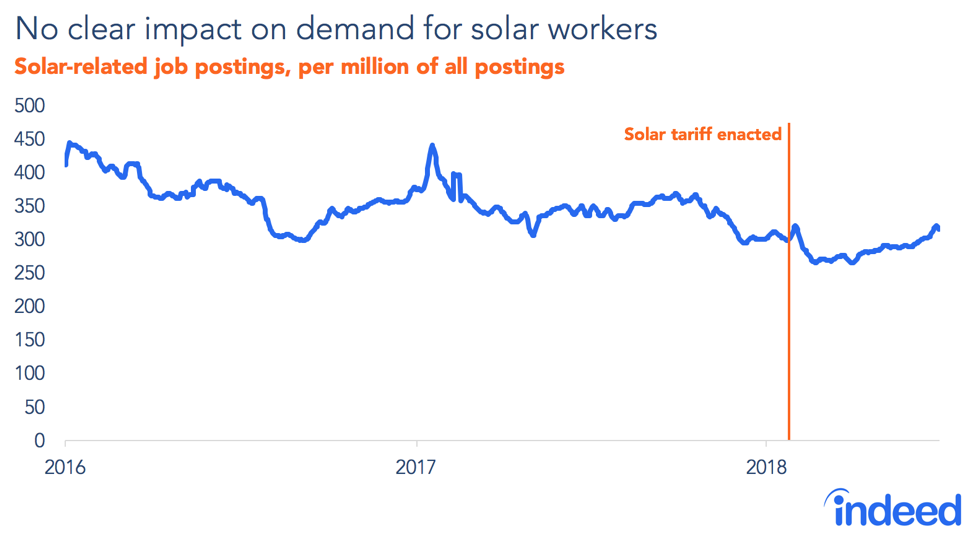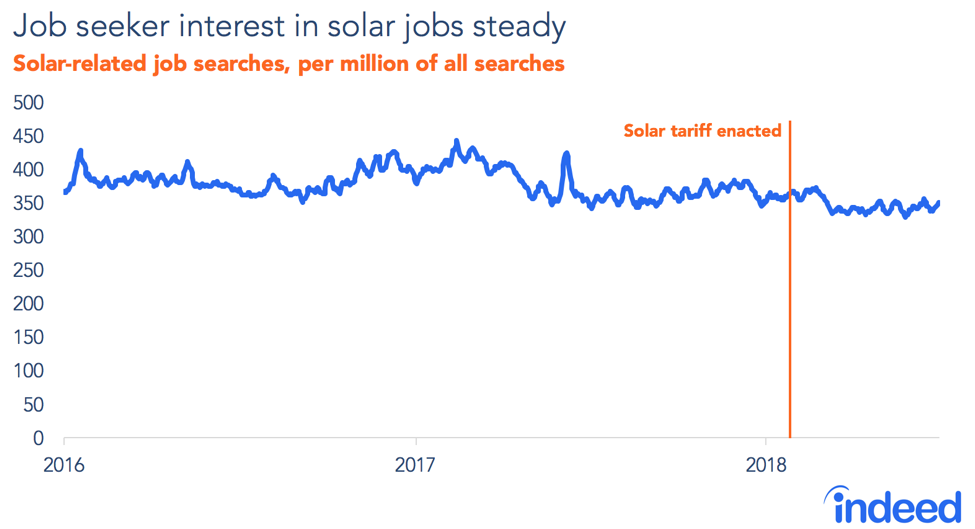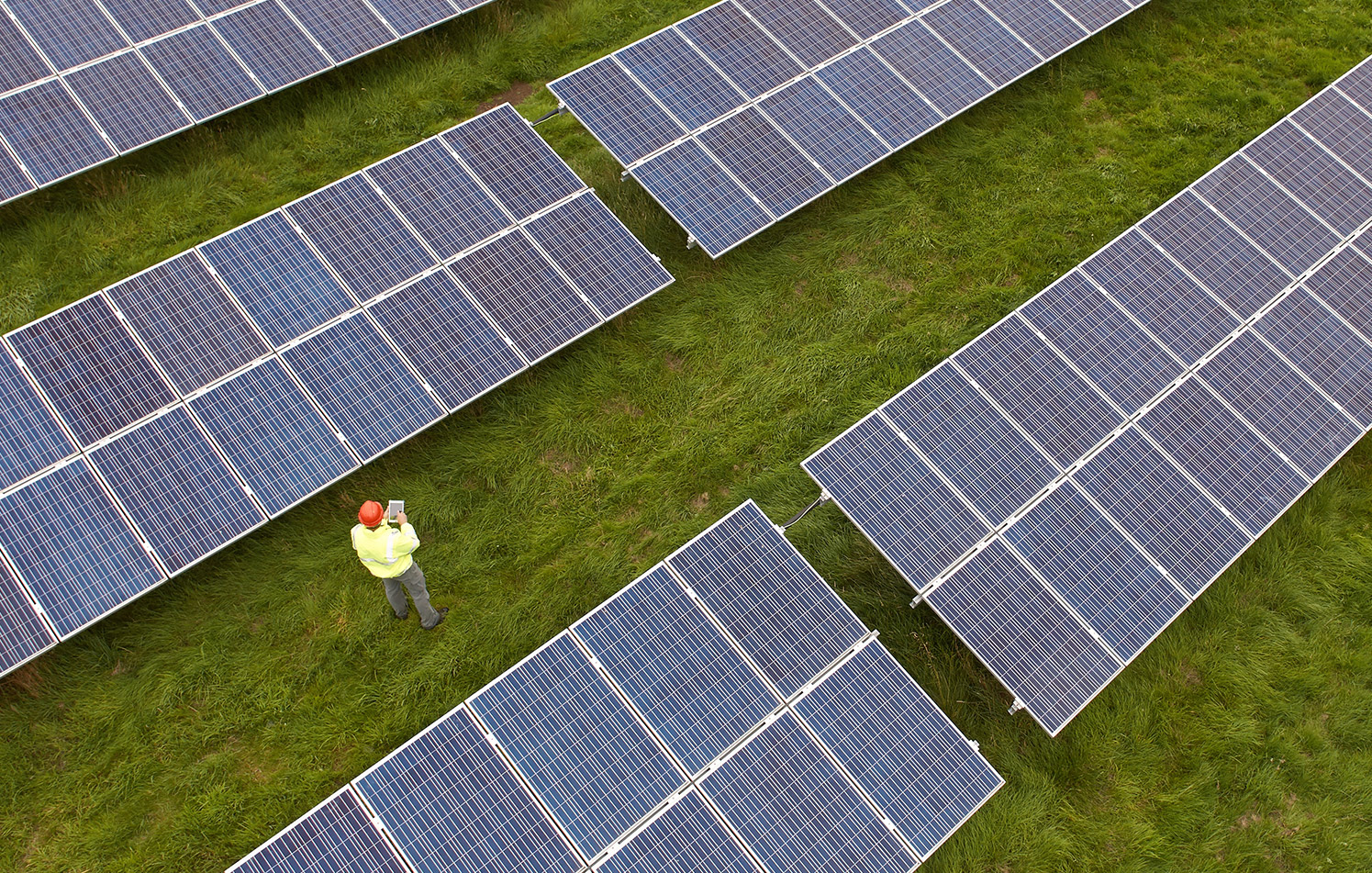When a 30% tariff hit imported solar panels earlier this year, many expected solar prices to rise in the US, which could wilt demand enough to cause job losses. With Indeed data we find that although solar job postings initially declined around the time of the tariffs, they are back at their pre-tariff level. This is consistent with the overall labor market, which has yet to show evidence of any meaningful response to changes in trade policy.
Indeed data allow us to explore any impact the tariffs have had on solar-related job postings, which we expect would entail a slowdown in installation roles and a possible bump in manufacturing. Solar-related job postings on Indeed, which are largely installation positions but also include sales and manufacturing, dipped slightly after the tariff was enacted. However, it would be difficult to declare this a result of the tariffs, as solar-related job postings have quickly recovered to their pre-tariff level. It appears that the market for solar jobs has thus far shrugged off the tariffs.

Meanwhile, despite extensive media coverage of new trade policies, job seeker interest in solar-related postings has been stable over the past year. We expect that if solar-related postings were to eventually fall in response to the tariffs, job seeker interest could possibly follow suit.

The overall effects of a trade war are anything but clear and the uncertainty created clouds the short-term outlook for the overall economy. We will continue to monitor Indeed data about the solar energy industry, as well as other industries, to gauge the impact of new tariffs on the labor market.
Methodology
We identify solar-related job postings as those with ‘solar’, ‘photovoltaic’, or ‘PV’ in the job title. Postings and searches are shown as per million total postings and searches, respectively, to account for Indeed’s growth over time.






